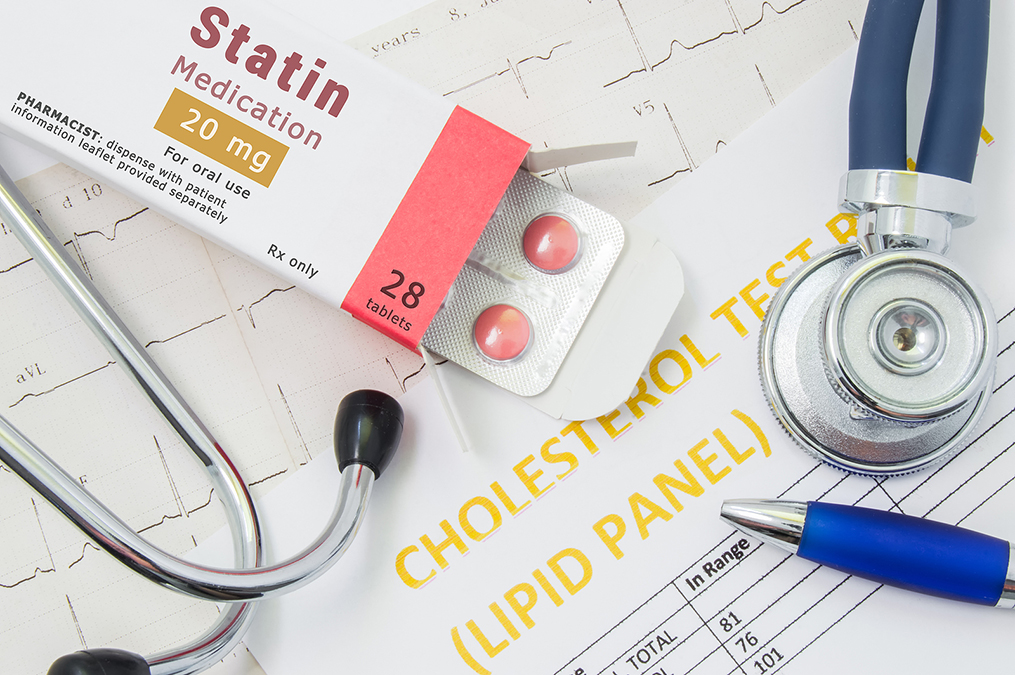 According to a new study published in the journal Neurology, the myth about high cholesterol has probably murdered millions of people.
According to a new study published in the journal Neurology, the myth about high cholesterol has probably murdered millions of people.
In fact, lowering your cholesterol to the recommended level of 100 mg/dL can increase your risk of having the most dangerous type of stroke by a frightening 220%.
This goes against everything doctors have been preaching for the last 50 years.
The researchers mined data from the Women’s Health Study that included the records of 27,937 women aged 45 and up.
At the beginning of the study, these women had their total cholesterol, their LDL cholesterol, their HDL cholesterol, and their triglycerides (blood fats) measured.
The scientists observed them over an average of 19 years to see which of them suffered from a hemorrhagic stroke.
Strokes come in two forms: ischemic, which occurs when blood flow to the brain is blocked by, for example, clogged blood vessels, and hemorrhagic, which happens when there is bleeding in the brain because of, for example, blood vessels that have burst or are weakened and leak.
A hemorrhagic stroke is much harder to treat than an ischemic one. According to the National Stroke Association, while hemorrhagic strokes only make up 13 percent of all strokes, they are responsible for 40 percent of stroke-related deaths.
When the researchers compared women with an LDL cholesterol of 70 mg/dL or lower with those with an LDL level between 100 and 130 mg/dL, they found that members of the former group were 2.2 times more likely to have a hemorrhagic stroke than members of the latter group.
This was still true after they excluded people with other stroke risks, such as high blood pressure, old age, smoking, and so forth.
But it wasn’t only LDL cholesterol that was a risk, and it was found that low triglycerides were equally bad.
Those with the lowest fasting triglyceride levels (74 mg/dL or lower) were twice as likely to have a hemorrhagic stroke as those with the highest fasting levels (156 mg/dL or higher).
Total cholesterol and HDL cholesterol, often called good cholesterol, had no effect on stroke incidents.
This study is alarming because it shows that official cholesterol recommendations are too low. It also shows the dangers of lowering cholesterol artificially through the use of statins and other cholesterol-lowering medications.

 Overcoming IBD
Overcoming IBD Multiple Sclerosis
Multiple Sclerosis Banishing Bronchitis
Banishing Bronchitis Gum Disease Gone
Gum Disease Gone Overcoming Onychomycosis
Overcoming Onychomycosis Neuropathy No More
Neuropathy No More The Prostate Protocol
The Prostate Protocol Brain Booster
Brain Booster
 Ironbound
Ironbound
 Solution for Shingles
Solution for Shingles
 The Bone Density Solution
The Bone Density Solution
 The Ultimate Healing Protocol
The Ultimate Healing Protocol
 The Parkinson's Protocol
The Parkinson's Protocol
 The Chronic Kidney Disease Solution
The Chronic Kidney Disease Solution
 Overthrowing Anxiety
Overthrowing Anxiety The Fatty Liver Solution
The Fatty Liver Solution The Hypothyroidism Solution
The Hypothyroidism Solution
 The End of Gout
The End of Gout The Blood Pressure Program
The Blood Pressure Program
 The Oxigized Cholesterol Strategy
The Oxigized Cholesterol Strategy
 Stop Snoring And Sleep Apnea Program
Stop Snoring And Sleep Apnea Program
 The Arthritis Strategy
The Arthritis Strategy The Vertigo & Dizziness Program
The Vertigo & Dizziness Program The 3-Step Diabetes Strategy
The 3-Step Diabetes Strategy Hemorrhoids Healing Protocol
Hemorrhoids Healing Protocol The Erectile Dysfunction Master
The Erectile Dysfunction Master Weight Loss Breeze
Weight Loss Breeze The IBS Program
The IBS Program The Insomnia Program
The Insomnia Program The Migraine and Headache Program
The Migraine and Headache Program The Neck Pain Solution
The Neck Pain Solution The Menopause Solution
The Menopause Solution The Ejaculation Master
The Ejaculation Master The TMJ Solution
The TMJ Solution The Acid Reflux Solution
The Acid Reflux Solution The Fibromyalgia Solution
The Fibromyalgia Solution The Psoriasis Strategy
The Psoriasis Strategy